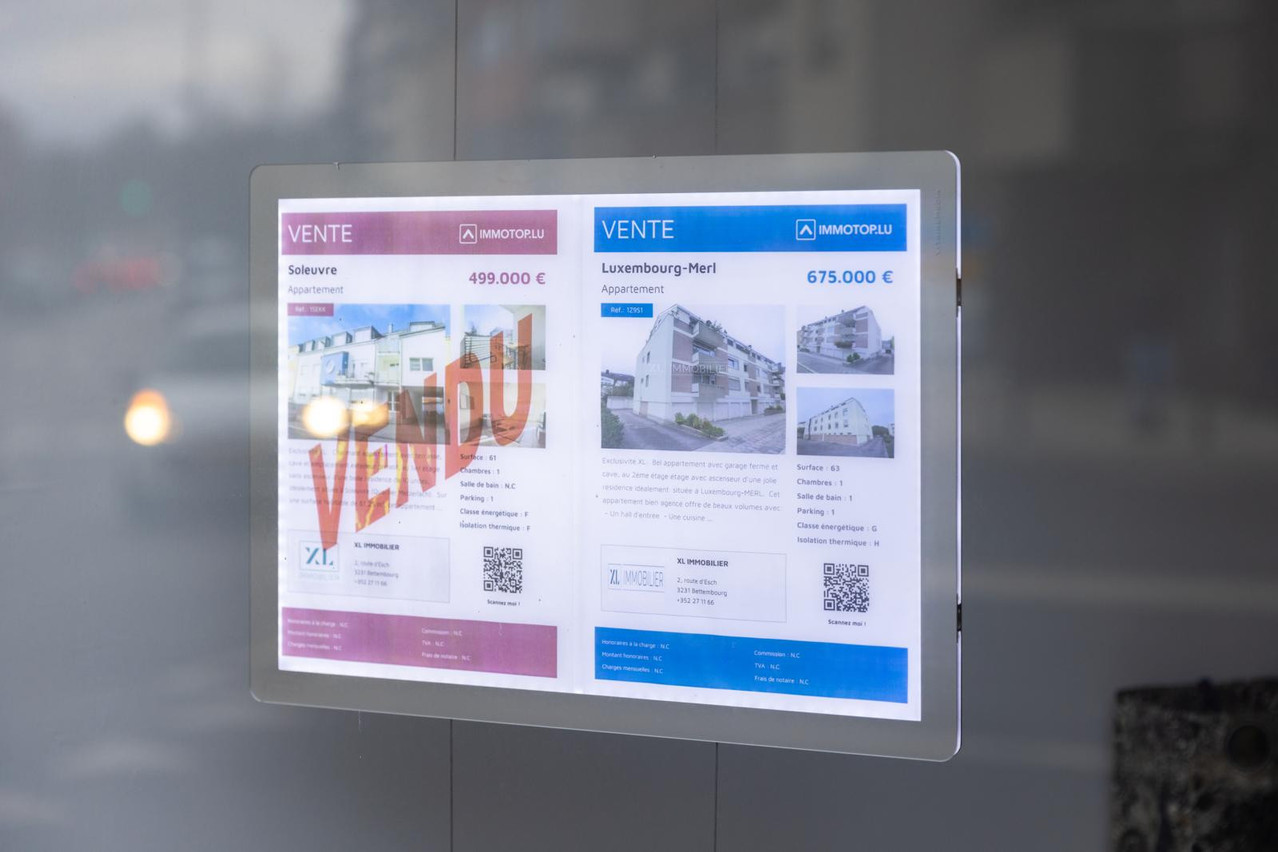Residential property prices in Luxembourg have experienced a tremendous increase, . This sustained and prolonged period of substantial growth in residential real estate (RRE) prices has resulted in a significant build-up of overvaluation in the housing market as well, adding vulnerability to the market and a possible negative equity scenario, meaning homeowners may find their property is worth less than the mortgage they owe.
Increasing overvaluation
As part of its ‘credit risk’ assessment, the European Central Bank calculates over/undervaluation of residential property prices in the real estate market, using maximum and minimum valuation estimates as measures of potential deviation from fair value.
These estimates are derived from four different factors: the price-to-rent ratio, the price-to-income ratio, and two model-based methods, namely the crude affordability ratio and a measure of imbalances in housing valuation.
In the case of Luxembourg, the ECB’s estimated average of RRE valuation remained relatively stable and comparable to real market prices until 2014. However, it then started rising, which could not be fully justified based on fundamentals.
At the end of Q3 2022, the average transaction value in Luxembourg was 61% higher than their expected real value. In comparison, the average overvaluation in neighbouring Belgium, France and Germany stood at 14%, 19.8% and 24% respectively.
However, ECB notes that while the overvaluation estimates and the methodology ensure consistency across countries, they may not necessarily account for country-specific factors.
Household debt
Residential property price increases, for both houses and land, remained consistently strong and have easily outpaced the rate of household incomes in the past decade. With increasing residential property prices, households took bigger loans. The result was that households became more indebted than ever.
According to data from Eurostat, the ratio of Luxembourg’s household debt to disposable income more than doubled since 2000, and as of 2021 stands at 181%.
To highlight the recent trend, the debt-to-income ratio in Luxembourg has increased by 30% between 2015 and 2021. This rise was driven in particular by ultra-low mortgage interest rates, which increased the appetite for households to take on bigger loans. Many households assumed that their future income would increase at a similar rate to any future interest rate changes.
The combination of increased mortgage lending and limited housing supply pushed house prices higher, leading to a continued increase in property overvaluation and creating a positive feedback loop. However, this continued overvaluation is not consistent with household economic conditions.
Read also
Added vulnerability
As the ECB has increased its key interest rates in recent months, banks in Luxembourg have also increased their mortgage rates. The cost of borrowing for households for purchasing a house has risen from 1.44% in February 2022 to 3.67% in February 2023.
While it may be easy for potential buyers to postpone their commitment to buying a house, many recent buyers may not have that choice.
According to a report from the European Systemic Risk Board in February 2022, around 30% of housing loans in Luxembourg have a variable interest rate. This means that after the initial period of fixed-rate interest, which typically lasts for one or two years, up to 30% of borrowers may be required to pay increased interest rates.
For some households, . It is likely that they need to reassess their loan portfolio.
Now, with housing overvaluation at its highest level in a decade, households may find themselves in an even tighter position, with a negative equity situation lurking at their heels where their real estate property is worth less than what they agreed to pay for their loans.
Thus, overvaluation adds a layer of vulnerability to the RRE market. The statistical and model-based estimates suggest that the Luxembourg’s housing market is significantly overheated and is likely vulnerable to a correction sooner rather than later.
